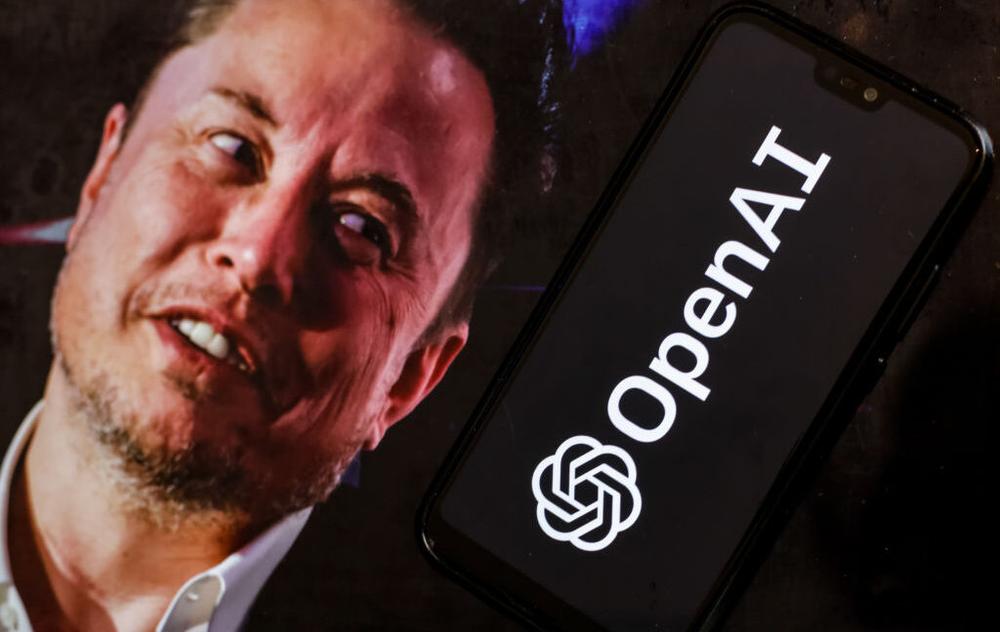Over the past week, OpenAI has faced backlash over subpoenas it sent to nonprofits accused of conspiring with Elon Musk to amplify public criticism of OpenAI as it sought to shift from a nonprofit to for-profit structure.
The subpoenas are supposed to support OpenAI's defense in a lawsuit Musk's X Corp filed to block the for-profit transition. Seeking a "wide variety of documents"—including a sweeping request for all communications regarding Musk and all information on nonprofits' funders and donations—OpenAI claimed that the subpoenas are intended to probe if Musk was involved in the actions or paid nonprofits to make critical comments, NBC News wrote in a report exhaustively documenting the controversy.
But nonprofits have alleged it's obvious that OpenAI is using the lawsuit to harass, silence, and intimidate its critics—most glaringly when it comes to targeting nonprofits that are even more publicly critical of Musk's companies than they are of OpenAI.
Emma Ruby-Sachs, executive director for Ekō—a nonprofit that serves as a global consumer watchdog holding the "biggest companies in the world accountable"—told NBC News that "the logical basis" for sending the subpoena "is so ridiculous that we have to assume this is just a tactic to scare us and get us to back off."
Ruby-Sachs noted that Ekō called for Musk to be fired as the head of DOGE earlier this year. Running a billboard in Times Square that showed a grinning Musk donning a crown, Ekō urged passersby to contact Congress if they "don't want a king."
Further, Ekō had corresponded with OpenAI prior to receiving the subpoena, confirming that "we’re over 70 percent funded by small online donations from individuals, and we’ve run multiple campaigns against Elon Musk in the last year," Ruby-Sachs said.
"We are not in any way supported by or funded by Elon Musk and have a history of campaigning against him and his interests," Ruby-Sachs told NBC News.
Another nonprofit watchdog targeted by OpenAI was The Midas Project, which strives to make sure AI benefits everyone. Notably, Musk's lawsuit accused OpenAI of abandoning its mission to benefit humanity in pursuit of immense profits.
But the founder of The Midas Project, Tyler Johnston, was shocked to see his group portrayed as coordinating with Musk. He posted on X to clarify that Musk had nothing to do with the group's "OpenAI Files," which comprehensively document areas of concern with any plan to shift away from nonprofit governance.
His post came after OpenAI's chief strategy officer, Jason Kwon, wrote that "several organizations, some of them suddenly newly formed like the Midas Project, joined in and ran campaigns" backing Musk's "opposition to OpenAI's restructure."
"What are you talking about?" Johnston wrote. "We were formed 19 months ago. We've never spoken with or taken funding from Musk and [his] ilk, which we would have been happy to tell you if you asked a single time. In fact, we've said he runs xAI so horridly it makes OpenAI 'saintly in comparison.'"
OpenAI acting like a “cutthroat” corporation?
Johnston complained that OpenAI's subpoena had already hurt the Midas Project, as insurers had denied coverage based on news coverage. He accused OpenAI of not just trying to silence critics but possibly shut them down.
"If you wanted to constrain an org’s speech, intimidation would be one strategy, but making them uninsurable is another, and maybe that’s what’s happened to us with this subpoena," Johnston suggested.
Other nonprofits, like the San Francisco Foundation (SFF) and Encode, accused OpenAI of using subpoenas to potentially block or slow down legal interventions. Judith Bell, SFF's chief impact officer, told NBC News that her nonprofit's subpoena came after spearheading a petition to California’s attorney general to block OpenAI's restructuring. And Encode's general counsel, Nathan Calvin, was subpoenaed after sponsoring a California safety regulation meant to make it easier to monitor risks of frontier AI.
Unlike many of the targeted groups, Encode filed an amicus brief supporting Musk in the OpenAI lawsuit, with Calvin arguing that "OpenAI was founded as a nonprofit in order to protect" their commitment to building AI that benefits the public, "and the public interest requires they keep their word."
On X, Kwon said Encode had inserted itself in the lawsuit by filing the brief, claiming, "We issued a subpoena to ensure transparency around their involvement and funding. This is a routine step in litigation."
But Calvin alleged that OpenAI's subpoena has little to do with the brief and more to do with Encode's advocacy, NBC News reported.
"I believe OpenAI used the pretext of their lawsuit against Elon Musk to intimidate their critics and imply that Elon is behind all of them," Calvin said.
While nonprofits raged over OpenAI's alleged intimidation tactics, litigator Ray Seilie told NBC News that OpenAI's request to subpoena Calvin could have been even more demanding.
"If OpenAI had wanted to intimidate or harass him, they could have served him with a deposition subpoena, which would have required Calvin to sit down for a full day of questioning under oath by OpenAI’s lawyers in addition to providing documents," Seilie said. "The fact that OpenAI only asked for documents suggests that they were sincerely looking for connections between Musk and Encode, even if they turned out to be wrong about their suspicion."
But Robert Weissman, co-president of a consumer advocacy group not yet targeted by OpenAI, Public Citizen, told NBC News that the subpoenas appear to seek private information from some of OpenAI's loudest critics to "chill speech and deter them from speaking out." The overly broad requests seem overtly shady, Weissman said, like "the kind of tactic you would expect from the most cutthroat for-profit corporation."
“This behavior is highly unusual," Weissman said. "It’s 100 percent intended to intimidate."
OpenAI faces criticism on subpoenas from within
Some current and former OpenAI employees were bothered enough to speak out about the subpoenas, including Joshua Achiam, OpenAI's head of mission alignment. "This doesn't seem great," he wrote, sharing "thoughts" with the public and noting "all views are my own."
"Elon is certainly out to get us, and the man has got an extensive reach," Achiam said. "But there is so much that is public that we can fight him on."
While claiming he would not be at OpenAI if the company didn't have "an extremely sincere commitment to good," he acknowledged that "we can't be doing things that make us into a frightening power instead of a virtuous one. We have a duty to and a mission for all of humanity. The bar to pursue that duty is remarkably high."
To Achiam, the main takeaway of the controversy—which he ranks below OpenAI's prior scandal silencing employees with a non-disparagement clause—is that OpenAI's public trust depends on the company receiving pushback from employees like him on any "dangerously incorrect use of power."
"Without someone speaking up once in a while it can get worse. So, this is my pushback," Achiam wrote, closing a thread where the initial post got about 570,000 views but later posts only attracted around 30,000.
"The clear lesson from that was: if we want to be a trusted power in the world, we have to earn that trust, and we can burn it all up if we ever even seem to put the little guy in our crosshairs," Achiam wrote.
Meanwhile, Musk seized the moment to fan the flames of social media criticism, reposting an X post from Helen Toner, a former member of OpenAI’s board, who criticized OpenAI's "dishonesty and intimidation" tactics in sending the subpoenas.
"OpenAI was built on a lie," Musk wrote in a post garnering almost 30 million views.

 There’s a sneaky way to watch South Park Season 27 Episode 6 for free
There’s a sneaky way to watch South Park Season 27 Episode 6 for free